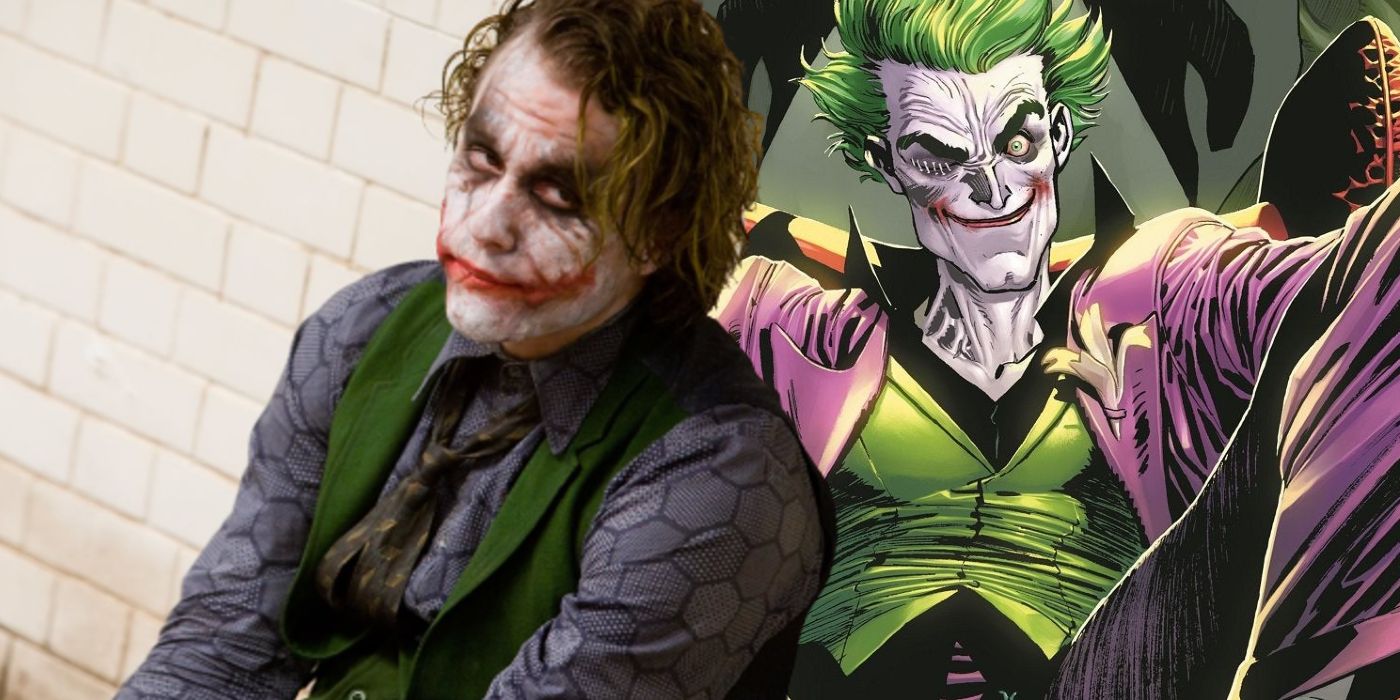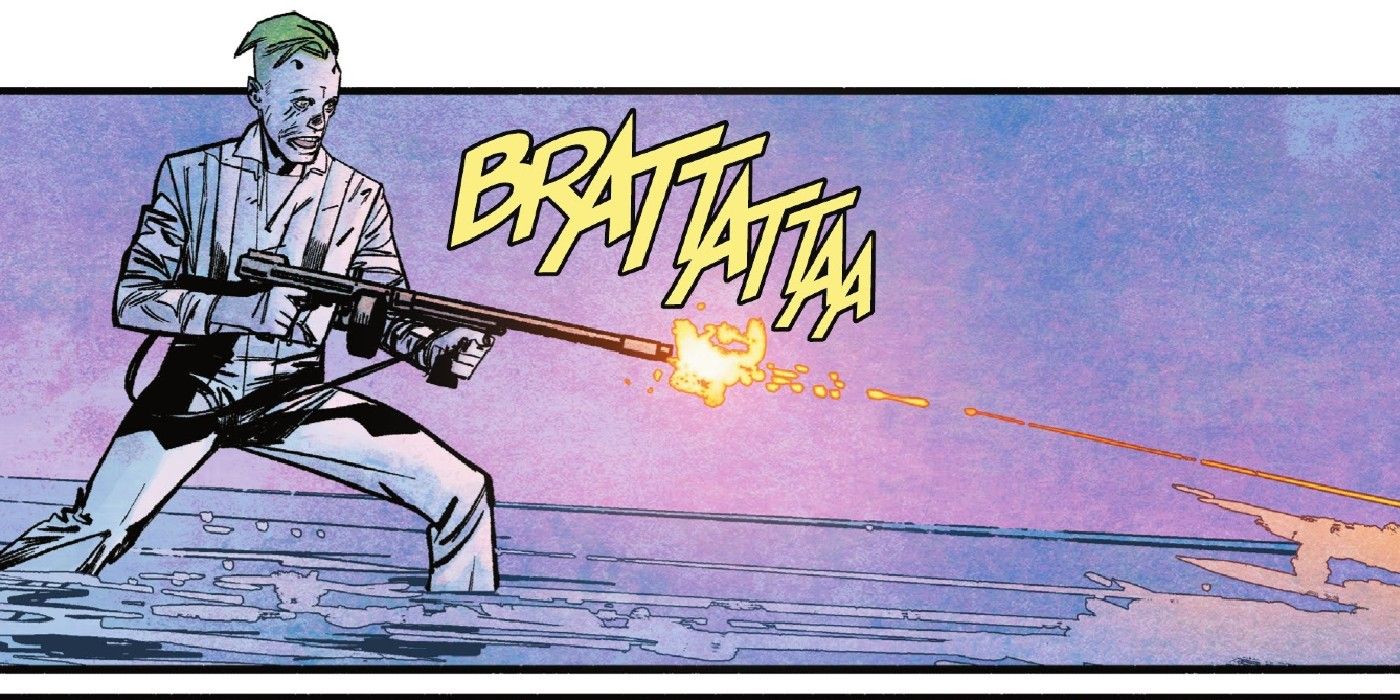Joker's 'Dark Knight' Lie Has Broken the Character | Screen Rant

WARNING: Spoilers for Batman/Catwoman #7 and Suicide Squad: Get Joker! #2!
The Clown Prince of Crime, Joker is one of the most iconic villains in DC Comics and pop culture as a whole, but unfortunately, the greatest lie he ever told fundamentally broke him as a character - and fans are still feeling the effects.
Created by Bill Finger, Bob Kane, and Jerry Robinson, Joker first appeared in 1940’s Batman #1 and has remained Batman’s archrival ever since. He’s appeared in countless adaptations, and in many circles is arguably as popular as Batman himself. With all these adaptations, it’s no wonder that the character changes based on the interpretation. But Heath Ledger’s iconic portrayal of the Joker in The Dark Knight took on a life of its own. And the ramifications of that iteration are still being felt in the comics: specifically in Batman/Catwoman #7 and Suicide Squad: Get Joker! #2.
Batman/Catwoman #7 by Tom King and Liam Sharp features a more calculating version of the Joker that many comic fans are used to seeing. As usual, Joker is one step ahead and he manipulates the Phantasm into freeing him after having analyzed the psychology of Andrea Beaumont, and even Batman and Catwoman as well, in order to get them to do exactly what he wanted throughout the series. Meanwhile, in Suicide Squad: Get Joker! #2 by Brian Azzarello and Alex Maleev, the Squad find themselves interacting with a Joker who is undoubtedly unhinged. This Joker acts on pure instinct, and he even has the Squad fight the tides of the sea as he does every single morning just because he thinks he’s the one holding it back. Neither of these versions of the Joker aren’t within the primary continuity, but they highlight an overall issue with the character that’s run rampant for years thanks to The Dark Knight.

One thing fans loved about Ledger’s Joker is his portrayal as a self-proclaimed “Agent of Chaos,” a man without a plan who wants to bring an anarchic shock to the system. The general audience took that line and ran with it, and while that title sounds good on paper, it’s not one that the Joker typically lives up to. Even in that very film, saying the Joker has no plan is a total lie. It may be violent, terrifying, and nonsensical, but typically, the Joker has a plan. Without one, he probably wouldn’t be able to consistently outwit the World’s Greatest Detective.
After all, there’s simply no way that the Joker could have orchestrated something like the Joker War and stolen the Wayne Family fortune if he was just a man flying by the seat of his pants. And yet part of the character’s mass appeal is his seeming randomness that frequently goes overboard into absolute nonsense. Many writers have tried to explain the character’s fluidity in-continuity in stories like Geoff Johns and Jason Fabok’s Batman: Three Jokers, but they never quite justify the rampant disconnect that fans see from issue to issue.
Batman/Catwoman #7 and Suicide Squad: Get Joker! are just the latest examples of DC Comics’ recent inability to define the Jester of Genocide outside of on-screen adaptations. Many may think that the Joker’s ambiguity is one of the character’s biggest strengths, but really, it just makes him as confusing for the audience as he is for Batman. The Clown Prince of Crime is understandably a fan-favorite, but when it comes to consistency, he’s sorely lacking. And until DC manages to define what the Joker really stands for, it seems that any potential depth the character could have will just be one big joke.
No comments: